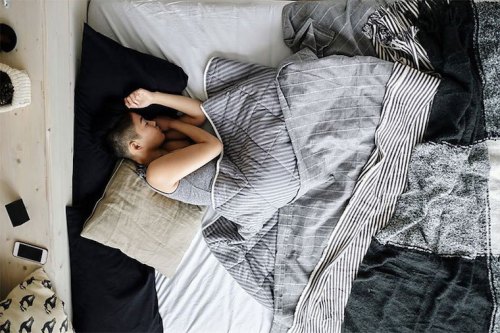Health experts have megaphoned the benefits of powering down your digital devices hours before bedtime if you want to bank a solid night of zzz’s. And yet, 2018 will be the year technology is welcomed into the bedroom to actually improve your sleep quality.
By creating the optimal environment for you to snooze via temperature controls, sharing data about your REM stats, and creating solutions to help you wake up naturally, digitized beds aim to help you sleep better than ever. “The appetite for products designed to improve sleep is very high,” confirms tech news site UKTN, which is why both funding and sleep-tech innovation in this category are taking off, too.
Smart mattresses from Serta Simmons Bedding offshoots Tomorrow Sleep and Eight Sleep include features that analyze REM cycles for up to two people in bed, wake you up via a smart alarm that knows when you’re in a stage of light sleep, and allows you to control the temperature for optimal sleep climate. (Hint: Cooler is better.) Both models are also smart-home compatible, so you can wake up and ask, “Alexa, how did I sleep?”
Sleep trackers that work with your existing mattress (like S+ by ResMed, Emfit, and Sleeptracker) are part of this growing Sleep AI category. They nap on your nightstand and send you bio and bedroom data to an app on your phone. And a small study conducted with 6,100 AppleWatch users found it may accurately detect hypertension and sleep apnea, so Apple may be learning how it can play more of a role in your life offline.
Matteo Franceschetti, Eight Sleep’s CEO, compares this era of personalized sleep intel to your diet. “If you didn’t know what calories were or what your calorie intake was, how could you take care of your own nutrition?” In other words, (sleep) knowledge is power.
What else is going to be huge next year? We’ve picked 18 for ’18—check out all of our Wellness Trend predictions here.
Sign Up for Our Daily Newsletter
Get all the latest in wellness, trends, food, fitness, beauty, and more delivered right to your inbox.
Got it, you've been added to our email list.











